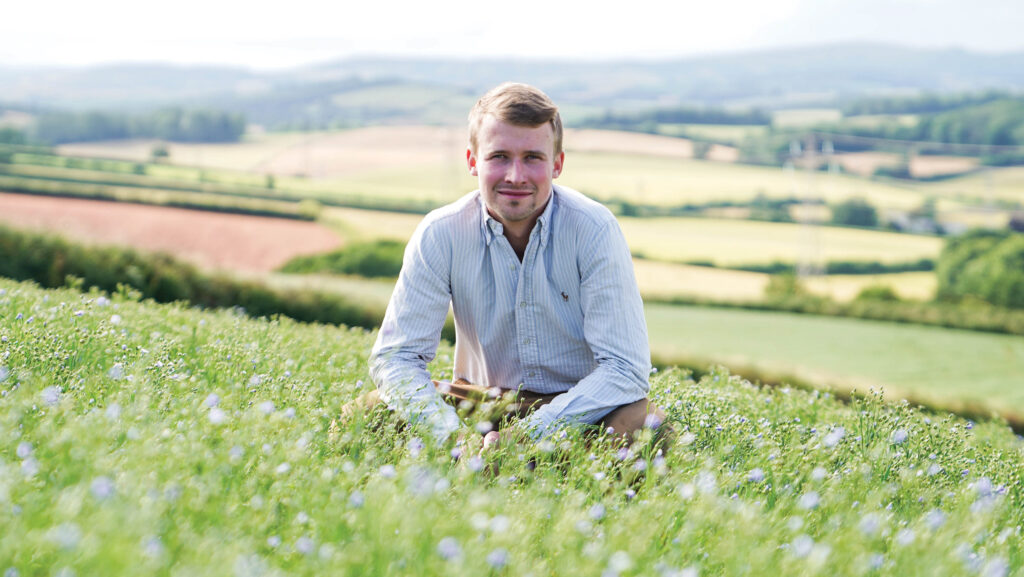Farmer Focus: Will South West become new wheat basket?
 Richard Harris © Emily Fleur
Richard Harris © Emily Fleur It is hard to sum up the past month or so.
We were very fortunate in south Devon to receive a significant amount of rain over the Easter weekend, which was the first in about six weeks.
This finally washed in the nutrients to crops, correcting some of the deficiencies the tissue tests showed up – mainly sulphur, magnesium, zinc and boron. It was all there, just not able to be utilised by the crop.
See also: Eliminating chemicals helps future-proof pig and arable farm
Another 20mm on 11 May has kept everything pushing along.
So it’s business as usual for us on the disease front in the winter wheat. We are 10 days ahead of last year, with significant mildew and bottom canopy septoria to contend with – a much better problem to have than the drought conditions much of the country is facing.
Interestingly, these diseases are worst on the overlaps of the grassweed herbicide we applied back in April, targeting brome and wild oats. Plant health is compromised and in comes the disease. Again, we are focusing our minds on healthy crops first.
The field of mayflower is certainly more tolerant of septoria than our blend, which is now in its fifth season. Time to have a reshuffle this autumn, with mayflower becoming a significant proportion of the blend.
Although the wheat looks well, it’s certainly shorter and a lot lower on biomass than usual.
Straw yields look highly likely to be compromised across the country, so every bale will be more valuable than ever. It’s likely it will be more for a tonne than the grain price, which is terrible. Interesting that the ears look, at this stage, to be larger than normal.
Maybe the plant has put its energy into this instead.
The linseed has come away well and survived the flax beetle attack, which feels like it gets worse every year. It’s been fortunate to receive this rain, as I fear that otherwise it might not have made it past the beetle.
Maybe the South West, with its consistent moisture, will challenge the eastern counties as the wheat basket, and not just about grass and livestock production.


